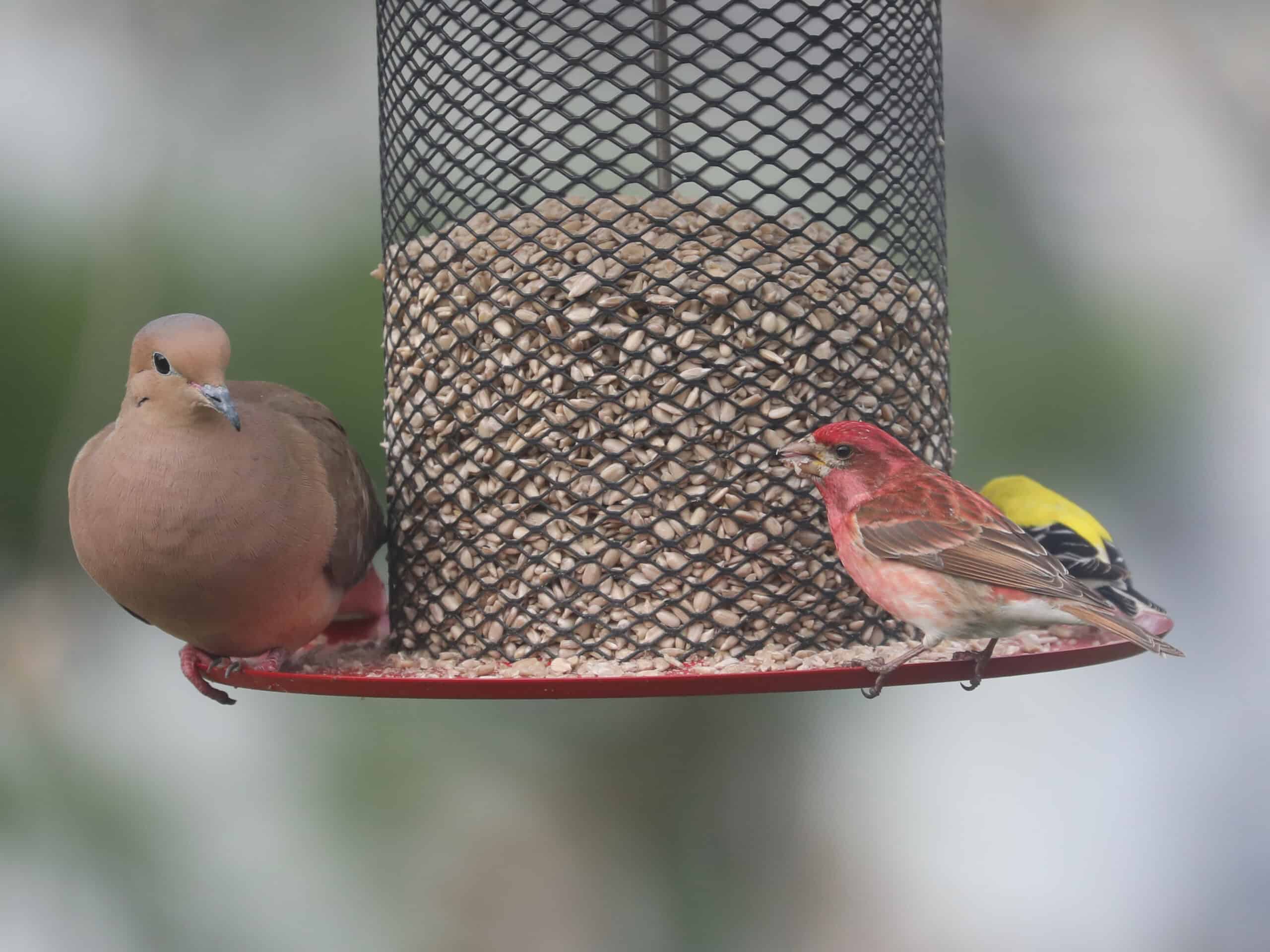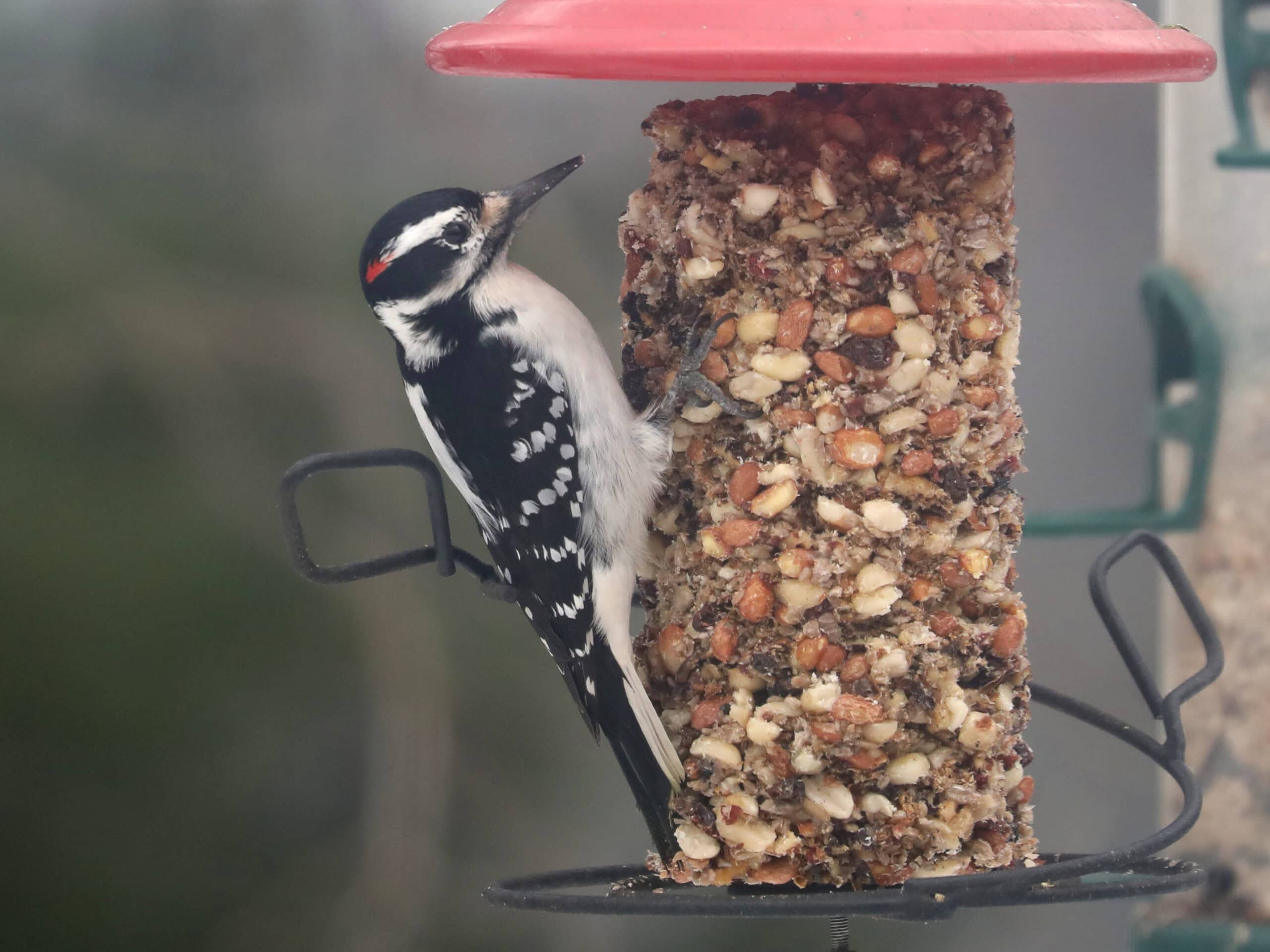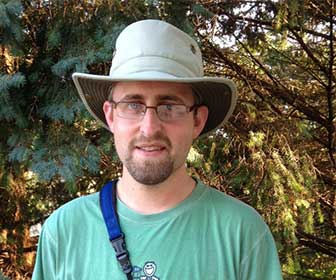Is Your Backyard Safe for Birds?
Bird feeding done right can be a great help to your backyard birds. Done wrong, bird feeding may expose birds to new threats. Show your birds you care by adopting some simple changes to keep them safe.
Keep your feeders clean
Dirty or wet bird feeders can host diseases and parasites that can make your birds sick.
- Experts recommend that feeders are thoroughly cleaned every few weeks.
- Wash feeders with soap and a feeder brush. Rinse thoroughly, then submerge the feeder in a bucket with a 10% bleach solution for a few minutes. Rinse thoroughly and let the feeder dry completely before refilling.
- Wild Birds Unlimited EcoClean feeders do not require the bleach rinse. Our state-of-the-art EcoClean feeders have a silver ion finish that impedes the growth of bacteria, mold, mildew, and fungus.
- Discard wet seed, which is much more likely to host bacteria and parasites.
- Add a weather guard to keep your seed dry.
Limit opportunities for predators
Bird feeders concentrate many birds in a small space. Predators like hawks and cats can learn to take advantage of these communal gatherings.
- Provide cover, such as bushes and trees, near your bird feeders so your birds can escape when they feel threatened.
- Keep household cats indoors. Cats kill billions of songbirds every year in the United States alone.
Minimize window collisions
Birds may not recognize reflective surfaces like windows as an obstacle to avoid. A fast-flying bird can injure or kill itself if it strikes too hard.
- Place bird-safe decals on the outside of your windows so birds will recognize the hazard. Stop by the store for details.
- Place feeders greater than 10 feet from windows, or within 3 feet of windows. The space in between is a Danger Zone in which birds are more likely to be injured by a window strike.
Is Your Backyard Safe for Birds?
Bird feeding done right can be a great help to your backyard birds. Done wrong, bird feeding may expose birds to new threats. Show your birds you care by adopting some simple changes to keep them safe.
Keep your feeders clean
Dirty or wet bird feeders can host diseases and parasites that can make your birds sick.
- Experts recommend that feeders are thoroughly cleaned every few weeks.
- Wash feeders with soap and a feeder brush. Rinse thoroughly, then submerge the feeder in a bucket with a 10% bleach solution for a few minutes. Rinse thoroughly and let the feeder dry completely before refilling.
- Wild Birds Unlimited EcoClean feeders do not require the bleach rinse. Our state-of-the-art EcoClean feeders have a silver ion finish that impedes the growth of bacteria, mold, mildew, and fungus.
- Discard wet seed, which is much more likely to host bacteria and parasites.
- Add a weather guard to keep your seed dry.
Limit opportunities for predators
Bird feeders concentrate many birds in a small space. Predators like hawks and cats can learn to take advantage of these communal gatherings.
- Provide cover, such as bushes and trees, near your bird feeders so your birds can escape when they feel threatened.
- Keep household cats indoors. Cats kill billions of songbirds every year in the United States alone.
Minimize window collisions
Birds may not recognize reflective surfaces like windows as an obstacle to avoid. A fast-flying bird can injure or kill itself if it strikes too hard.
- Place bird-safe decals on the outside of your windows so birds will recognize the hazard. Stop by the store for details.
- Place feeders greater than 10 feet from windows, or within 3 feet of windows. The space in between is a Danger Zone in which birds are more likely to be injured by a window strike.
About The Author
Dan Hinnebusch is the Ornithologist for Wild Birds Unlimited. Click to learn more.





